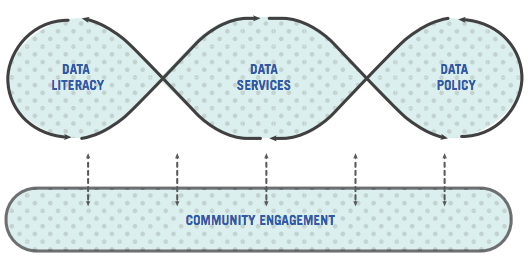Share
At the World Humanitarian Summit, OCHA announced that it would establish a new center for humanitarian data in The Hague in 2017. This commitment is related to the Secretary-General’s Agenda for Humanity, specifically the shift to ‘change the way we work to end need’. The HDX team is now focused on turning this idea into a reality.
The Center’s mission is to increase the use and impact of data in the humanitarian sector. The vision is to create a future where all people involved in a humanitarian situation have access to the data they need, when and how they need it, to make responsible and informed decisions.
I have been managing the Humanitarian Data Exchange (HDX) for the last few years. Together with our partners, we have made tremendous progress in making data available from crises around the world — over 250 organizations are sharing 4,000+ datasets through the platform. At the same time, our work on HDX has made it clear that there are a wider set of challenges that need to be addressed if data is going to become an integral part of humanitarian response.
I believe that the Center can provide this support and create opportunities for collaboration and investment in humanitarian data. The Center will focus on four areas: data services, data policy, data literacy and community engagement. The main engine of the Center will be data services. This work is already underway as part of our effort to scale the HDX platform and develop the Humanitarian Exchange Language (HXL). The HDX and HXL workstreams will move into the Center bringing with them a functioning service model with an active partner network. You can read more about the Center in this overview.

Partner Design Workshop in The Hague
In order to engage partners early in the creation of the Center, we held our first design workshop in The Hague from 4-5 October. The workshop brought together 40 European-based partners to get feedback on the draft business plan and to explore joint activities. You can get a sense of our time together by looking at these slides.

During the workshop, a team from Google ran a Creative Skills for Innovation Lab that pushed us to think ‘10x’ when devising solutions to problems. For instance, I worked with a group that focused on the Center’s sustainability and one of our solutions, inspired by ICRC, was to create a social impact bond for humanitarian data to open investment to a wider group of people.
Many ideas emerged from our sessions that I will be incorporating into the business plan and, more importantly, into the running of the Center. There was an unresolved debate about whether the Center should have a research and development focus that examines the potential impact of new technologies and practices on our work. We also brainstormed names for the new Center, with many participants voting to build on the HDX brand. You can see all of the name ideas here.
Overall, partners are excited about what the Center may be able to accomplish. They recognize that creating a shared space in The Hague and in other locations is a practical example of changing the way we work. You can watch the following 2-minute video to get a sense of how people see the value of the Center.
Additional workshops are planned for New York and Nairobi in the weeks ahead. We will also engage partners in Dakar and Jakarta in the coming months. You can follow our progress through @humdata. We are very open to ideas on how we can make the Center a success. Please send thoughts and feedback to hdx@un.org.
Good luck!